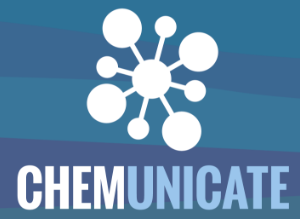Communication skills
 An essential life skill
An essential life skill
What exactly constitutes a life skill is quite subjective and is also very dependent upon cultural bias. However almost all lists of life skills include communication. For example, the five cross-cultural core life skills listed by the World Health Organisation are:
The ability to make decisions and solve problems
Creative and critical thinking
Communication and interpersonal skills
Assertiveness and equanimity
Resilience and the ability to cope with emotions and stress
General communication skills
Clearly a good scientist needs to be able to communicate to others and good communication skills is an essential requirement when it comes to seeking employment etc. However what it meant by being able to communicate has changed considerably in the past few decades due to all the advances in information and communications technology (ICT) and social media. In a landmark publication in 2010, Marilyn Blinkley et al. from the University of Melbourne, Australia set out what they saw as necessary communication skills for young people in the 21st century.
21st Century Communication skills
- The ability to communicate, in written or oral form, and understand, or make others understand, various messages in a variety of situations and for different purposes.
- The ability to listen to, and understand, various spoken messages in a variety of communicative situations, and to speak concisely and clearly.
- The ability to read and understand different texts, adopting strategies appropriate to various reading purposes (reading for information, for study or for pleasure) and to various text types.
- The ability to write different types of texts for various purposes. To monitor the writing process (from drafting to proofreading).
- The ability to formulate one’s arguments, in speaking or writing, in a convincing manner and take full account of other viewpoints, whether expressed in written or oral form.
- The skills needed to use aids (such as notes, schemes, maps) to produce, present or understand complex texts in written or oral form (speeches, conversations, instructions, interviews, debates).
Note that the ability to listen is considered to be an important communication skill. Perhaps an additional necessary communication skill not listed above is the ability to be discerning - to spot 'fake news'. The ability to communicate well permeates all the Diploma programme and is particularly important in Extended Essays etc. There is of course an extra dimension (possibly burden) for many IB Diploma students as you are required to be able to communicate in one of the accepted languages for assessment (English, Spanish or French) which may well not be your mother language. I have had many students whose English has been virtually non-existent when they started their two year course but who have gone on to achieve excellent marks in their Diploma. Some benefited from additional help from our English B department, many others benefited from working closely with students who were native English speakers. If you are a non-native speaker try to work as much as possible in English even when you are taking notes. If you have a reasonable background in chemistry when you arrive then you can benefit from the fact that chemistry to quite a large extent does have a universal language.
Communication in Chemistry
In addition to general communication you also need to learn how to communicate well in chemistry. Some aspects of chemical communication are relatively esoteric and you will not be penalised if you do not follow them. For example, constants should be written in italics so the general gas equation should really be written as PV = nRT rather than as PV = nRT. However you are supposed to be able to understand (and will be assessed on) how organic compounds are named following IUPAC rules and the difference between oxidation state and oxidation number etc. etc. I have often found that students who are having difficulty solving a problem do not actually have a lack of knowledge and understanding of the relevant chemistry. Their problem is that they do not understand the question because they do not understand the language of chemistry. I have written much more about this with examples in the page on Language of Chemistry.

 IB Docs (2) Team
IB Docs (2) Team